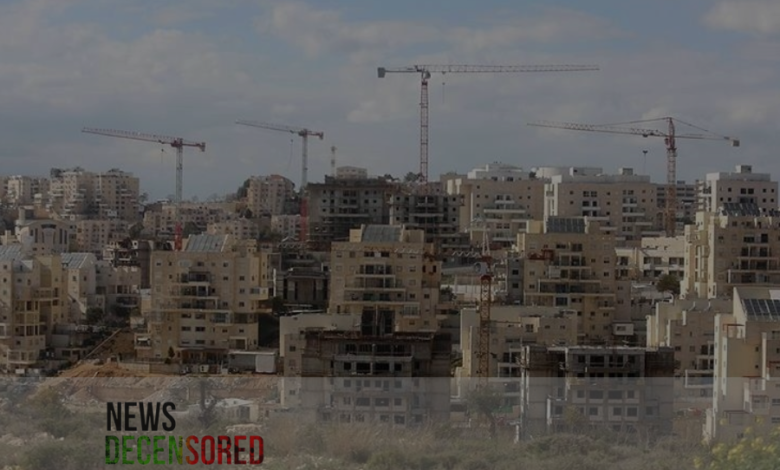Israel plans to build 5,300 more settlement units, expanding illegal housing in West bank

Israel has recently publicized the plan to authorize 5,300 new units in the West Bank, thus setting off a new international controversy regarding the legality and consequences of the settlements. Many see the decision as creating a new obstacle in fulfilling peace between Israel and the Palestinians and escalating an intensely debated policy of Israel.
The West Bank, land captured during the 1967 Six-Day War by Israel, has become the epicenter of the Israeli–Palestinian conflict. A transfer of the civilian population of an occupying power into occupied territory is illegal according to international law, and the Fourth Geneva Convention expressly forbids it. This makes the settlements mentioned above unlawful. However, Israel argues otherwise on historical links to the land, biblical rights, and security concerns.
Over the years, successive Israeli governments have presided over the growth of the settlement enterprise, escalating friction with Palestinians and the international community. Some 700,000 Israelis live in these homes, and most countries around the world, as well as the Palestinians themselves, have labeled them a significant impediment to the creation of a strategically contiguous and workable Palestinian state.
Constructing settlements is considered by many to be an attempt to create, with settlements themselves, facts on the ground that would argue against the possibility of a viable, contiguous Palestinian state once that possibility is at hand. Every additional settlement further divides the West Bank, which would then be so ambiguous and implausible that an endeavor could never agree on future lines that either side would have agreed upon or negotiated under the auspices of a two-state solution.
Palestinian leaders have, however, remained critical of all new settlement decisions, arguing that they destroy any chances of peace. Palestinian Authority President Mahmoud Abbas, on many occasions, has urged the international community to intervene in stopping the expansion, saying these acts are violations of Palestinian rights and international law.
In the international arena, the new settlement has met with criticism. The United Nations has raised such calls for stopping settlement activities in the European Union and many other countries, arguing that the actions, every time, are detrimental to the efforts for peace and break international norms.
In Israel itself, the opinion of settlers is markedly divided. For the Israeli right-wing, as personified by Prime Minister Benjamin Netanyahu and his political allies, settlement expansion is one legitimate exercise of Israel’s sovereignty and a necessary measure for security. They argue that the settlements are of strategic importance while at the same time demonstrating historical Jewish claims to the land.
Conversely, the Israeli left and a large number of civil societies oppose settlements on moral and practical grounds: the occupation of Palestinian territory cannot go on. They call upon a negotiated peace agreement, part of which sees them making significant setbacks and even dismantling some settlement outposts.
Conclusion
The approval of 5,300 new settlement units in the West Bank is the latest significant development in this long-standing and deeply complex conflict, with further repercussions on the path to a peaceful resolution and a sharp cleavage within Israeli society and the international community over the future it will present to the region. Settlement expansion will place the possibility of a two-state solution farther away than ever, robbing it of its potential to be revitalized through re-energized efforts and new peace-building initiatives.




